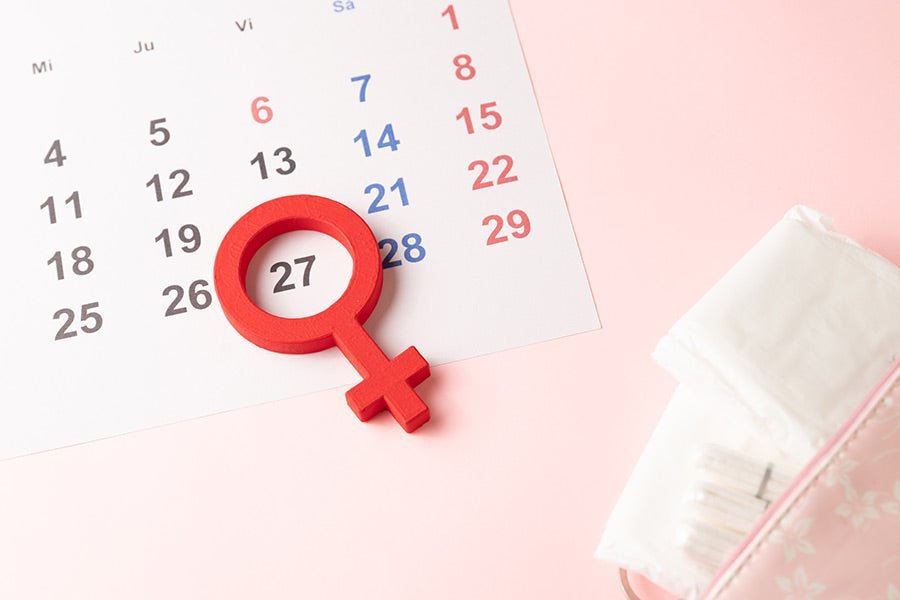Late Implantation Bleeding: Understanding Its Causes and What to Expect

Implantation bleeding is a natural phenomenon that some women experience in early pregnancy. While it typically occurs around 6 to 12 days after conception, there are instances where women report experiencing late implantation bleeding. This can raise concerns, especially when accompanied by spotting or light bleeding. Understanding the reasons behind this and how it differs from other forms of bleeding is key to easing any worries.
What is Implantation Bleeding?
Implantation bleeding occurs when a fertilized egg attaches itself to the uterine lining. As this process disrupts small blood vessels in the endometrium, it can result in light bleeding or spotting. Most women experience this bleeding shortly after conception, and it's often mistaken for the beginning of a menstrual period. However, when implantation happens later than expected, it can lead to spotting after a late period, which can be confusing for those tracking their cycle [1].
Causes of Late Implantation Bleeding
The timing of implantation can vary from person to person, and while early implantation is more common, late implantation can also occur. Late implantation bleeding might happen because the fertilized egg took longer to travel through the fallopian tubes and settle into the uterine lining. It’s also possible that hormonal fluctuations or minor irregularities in the menstrual cycle could delay this process.
Late implantation bleeding is typically light and shouldn’t last long. If the bleeding is heavy or prolonged, it’s essential to consult a healthcare professional to rule out other conditions, such as a miscarriage or ectopic pregnancy.
How Long Should Spotting Last?
If you're experiencing spotting and wondering, how long should spotting last, the answer can depend on various factors, including the cause. In cases of implantation bleeding, spotting generally lasts between a few hours to a couple of days. It’s usually much lighter than a regular period and may appear as a pink, brown, or light red discharge.
Spotting that lasts longer than expected, particularly if accompanied by pain or heavy bleeding, could indicate a different issue. For those who have irregular cycles, distinguishing between implantation bleeding and an actual period can be tricky, especially when spotting after a late period occurs.
Another common question many women have is, how long can spotting last when related to implantation bleeding. Generally, spotting should not last more than 1 to 3 days. If you notice that the spotting continues for an extended period, it’s important to pay attention to other symptoms. If the spotting is associated with cramping, significant discomfort, or large clots, seeking medical advice is crucial to rule out complications [2].
Recognizing the Difference Between Implantation Bleeding and Menstrual Bleeding
One of the most challenging aspects of implantation bleeding is that it can easily be confused with menstrual bleeding, especially when it occurs late. If you're experiencing how long does spot bleeding last, it’s worth noting that implantation bleeding is much lighter and shorter than a typical menstrual period. It’s often described as a “spotting” rather than a full flow. In contrast, last menstrual period bleeding tends to last longer, usually between 3 to 7 days, and is accompanied by a heavier flow and more intense cramping.
If you’ve experienced spotting after late period, you may wonder if it’s implantation bleeding or just a delayed cycle. Spotting after a late period could be due to several factors, including hormonal imbalances, stress, or even early hidden pregnancy signs. While it’s less common, some women may notice spotting after a missed period due to implantation bleeding occurring later than usual [3].
Should You Be Concerned?
In most cases, late implantation bleeding is not a cause for concern. It is a normal part of the early pregnancy process. However, it’s essential to monitor your symptoms. Light spotting that doesn’t last long is typically harmless. If the spotting continues beyond a few days, or if it turns into heavy bleeding, consult your healthcare provider to rule out other causes, such as a miscarriage or ectopic pregnancy.
It’s also important to differentiate implantation bleeding from other forms of spotting or bleeding that may arise due to different medical conditions. For example, spotting could occur due to hormonal imbalances, contraceptive use, or conditions like polycystic ovary syndrome (PCOS).
The Bottom Line
While late implantation bleeding can be confusing, it’s generally a natural and harmless occurrence in early pregnancy. Understanding how long should spotting last and the characteristics of implantation bleeding will help you better identify it. Light spotting should last no more than a few days and should not be accompanied by significant discomfort. If you're experiencing spotting after a late period, it’s possible that the implantation occurred later than usual, but monitoring the duration and intensity of the spotting is essential.
Remember, every woman’s body is different, and what’s normal for one person may not be for another. If you have concerns about spotting or any unusual symptoms, it’s always best to consult with a healthcare professional to ensure your health and peace of mind.
Resources
- E.W. Harville, A.J. Wilcox, D.D. Baird, C.R. Weinberg, Vaginal bleeding in very early pregnancy, Human Reproduction, Volume 18, Issue 9, September 2003, Pages 1944–1947, https://doi.org/10.1093/humrep/deg379
- Hasan R, Baird DD, Herring AH, Olshan AF, Jonsson Funk ML, Hartmann KE. Patterns and predictors of vaginal bleeding in the first trimester of pregnancy. Ann Epidemiol. 2010 Jul;20(7):524-31. doi:10.1016/j.annepidem.2010.02.006. PMID: 20538195; PMCID: PMC2884141.
- Kolstad HA, Bonde JP, Hjøllund NH, Jensen TK, Henriksen TB, Ernst E, Giwercman A, Skakkebaek NE, Olsen J. Menstrual cycle pattern and fertility: a prospective follow-up study of pregnancy and early embryonal loss in 295 couples who were planning their first pregnancy. Fertil Steril. 1999 Mar;71(3):490-6. doi:10.1016/s0015-0282(98)00474-9. PMID: 10065787.













